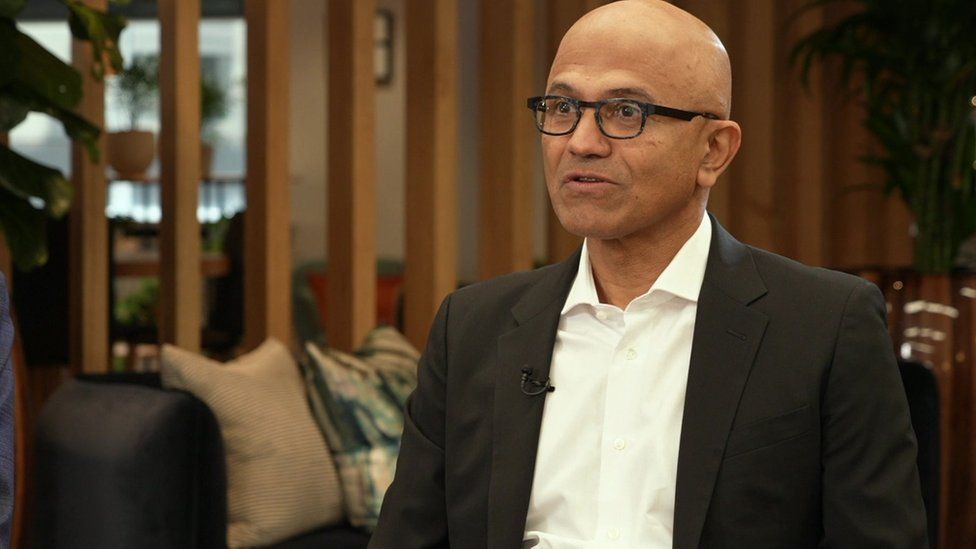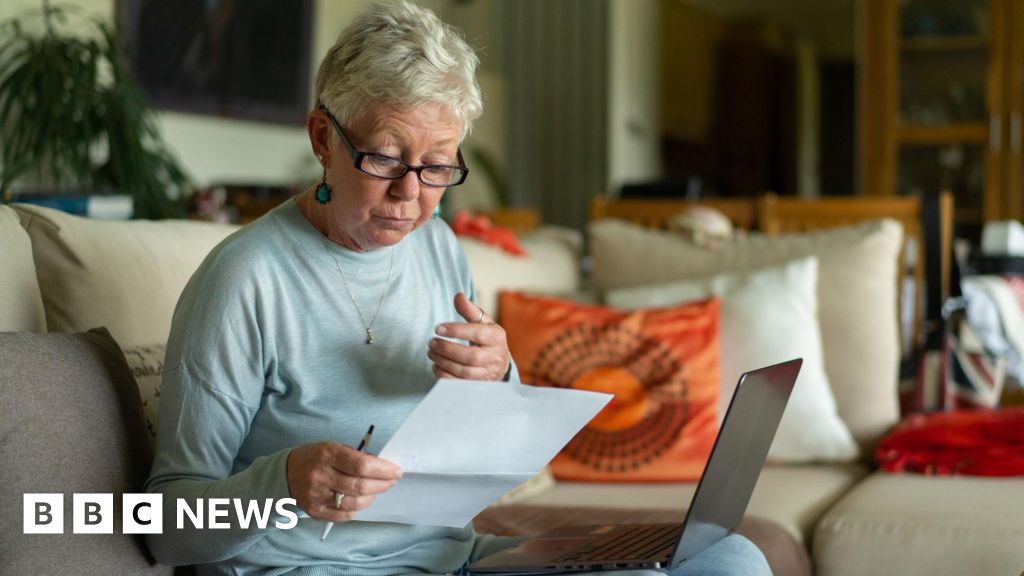ARTICLE AD BOX
By Simon Jack
Business editor

Microsoft boss Satya Nadella told the BBC that workplaces need to over come 'productivity paranoia'.
A major new survey from Microsoft shows that bosses and workers fundamentally disagree about productivity when working from home.
Bosses worry about whether working from home is as productive as being in the office.
While 87% of workers felt they worked as, or more efficiently, from home, 80% of managers disagreed.
The survey questioned more than 20,000 staff across 11 countries.
The Microsoft chief executive Satya Nadella told the BBC this tension needed to be resolved as workplaces were unlikely to ever return to pre-pandemic work habits.
"We have to get past what we describe as 'productivity paranoia', because all of the data we have that shows that 80% plus of the individual people feel they're very productive - except their management thinks that they're not productive.
"That means there is a real disconnect in terms of the expectations and what they feel."
Remote working peaked?
Both Mr Nadella and Ryan Roslansky, the boss of Microsoft-owned LinkedIn, said employers were grappling with perhaps the biggest shift in working patterns in history.
The number of fully-remote jobs advertised on LinkedIn soared during the pandemic but Mr Roslansky said data suggested that type of role might have peaked.
He told the BBC that of some 14 or 15 million job listings that are typically live on LinkedIn, about 2% of those involved remote working before the pandemic. Some months ago, that stood at 20%, and it has since come down to 15% this September.
At a time of acute labour shortages, employers are having to work harder to recruit, enthuse and retain staff. That even includes Microsoft itself, according to Mr Nadella.
"We had 70,000 people who joined Microsoft during the pandemic, they sort of saw Microsoft through the lens of the pandemic. And now when we think about the next phase, you need to re-energize them, re recruit them, help them form social connections."
Microsoft employees can work from home up to 50% of the time as standard. More than that requires management approval or a move to part-time working.
Some companies have struggled to impose new working arrangements and expectations.
There has been resistance to calls at Apple to return to the office three days a week from September, while Tesla boss Elon Musk has demanded 40 hours a week in the office sending an email saying: "If you don't show up, we will assume you have resigned".
An unprecedented number of people also changed jobs during - and since - the pandemic. A phenomenon Microsoft has dubbed "the great reshuffle", sees workers born after 1997 (so-called Generation Z) nearly twice as likely to switch jobs.
"At the peak of our 'great reshuffle' we saw a year-on-year increase of 50% of LinkedIn members changing jobs. Gen Z was at 90%," the report said.
By 2030, Generation Z will make up about 30% of the entire workforce so managers need to understand them, according to LinkedIn's boss.
As you might expect, alongside its new observations Microsoft has new products aimed at easing this potential mismatch in expectations. It is focusing on helping companies' younger workers feel a sense of belonging to, and an ability to learn in, an organisation in the way staff did in the past.
Its new Viva software, for example, allows direct contact to senior managers, online teaching and a channel to share personal photos - somewhat like a company intranet site with bells on to ring in a new world of work, which employers in particular are struggling to navigate.

 2 years ago
44
2 years ago
44








 English (US) ·
English (US) ·